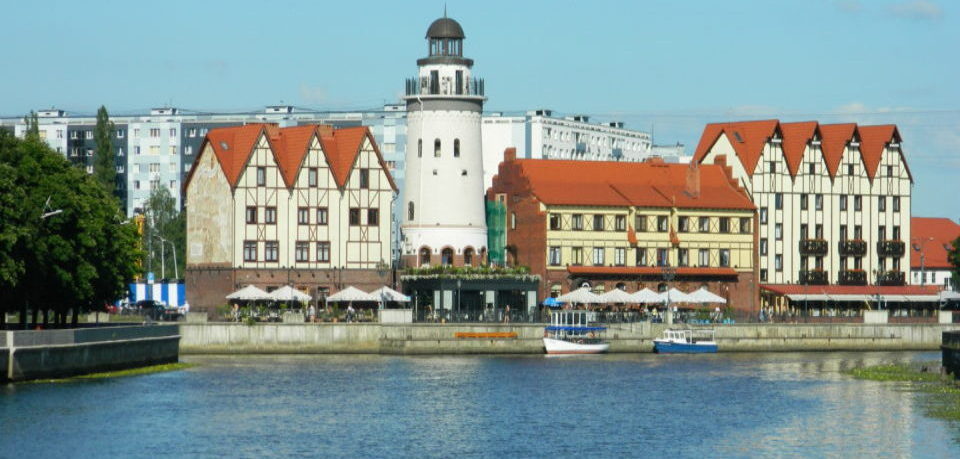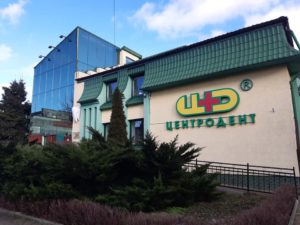Mick Hart’s totally biased review of bottled beers* in Kaliningrad (or how to live without British real ale!)
Published: 19 January 2022 ~ Cesky Medved Beer in Kaliningrad
Article 18: Cesky Medved
What’s not to like about a bear drinking a pint of beer? It’s so Russian. Look at him there on the label, that big cheeky grin and that foaming, frothing tankard. But wait! There’s something not quite right! It’s nothing to do with the bear. We all know that bears have big cheeky grins and drink beer. No, it’s the big beery head. Not the big beary head, but the soap-sudded head on top of the beer.
You see, Cesky Medved does not pour like that. It has no gargantuan head, in fact, it has very little head of which to speak. In fact, it’s as flat as your hat.
Ahh, that explains it, both the grin and the froth: our loveable old bear is not drinking Cesky Medved at all, he’s supping away at something completely different.
Previous articles in this series:
Bottled Beer in Kaliningrad
Variety of Beer in Kaliningrad
Cedar Wood Beer in Kaliningrad
Gold Mine Beer in Kaliningrad
Zhigulevskoye Beer Kaliningrad Russia
Lidskae Aksamitnae Beer in Kaliningrad
Baltika 3 in Kaliningrad
Ostmark Beer in Kaliningrad
Three Bears Crystal Beer in Kaliningrad
Soft Barley Beer in Kaliningrad
Oak & Hoop Beer in Kaliningrad
Lifting the Bridge on Leningradskoe Beer
Czech Recipe Beer in Kaliningrad
Zatecky Gus Svetly in Kaliningrad
Gyvas Kaunas in Kaliningrad
German Recipe Beer in Kaliningrad
Amstel Bier in Kaliningrad
Cesky Medved Beer in Kaliningrad
Here is a quote about Cesky Medved that was posted to a beer-review website. The website is Russian and (surprise, surprise) most of the comments posted there are in Russian. This comment may have lost something in its Google translation, but I am sure you get the drift:
“The aroma [of Cesky Medved] is artificial, candy-fruity. That’s what cheap fruity beer drinks smell like. (Malt extract?) … the same, sweet with sourness and notes of hop extract or oil … I don’t know what they use there, but the beer is very bad.”
To be brutally frank, this beer smells like … I don’t know what? When I first lifted the bottle lid and attempted to whiff it, I thought for a moment that I had forgotten to take off my face mask. (Please don’t mock. I am certain that there are some of you out there, and you know who you are, who live in your masks day and night!) But gradually, with the bottle shoved up my hooter as you would a decongestant, a pungency filtered through.
I would not describe the smell of Cesky Medved as sweet or ‘candy-fruity’, but rather more on the sour side with an indiscernible back-twang, the sort of thing you sometimes get when you are offered a drink of something and the cup that you are drinking out of has not been washed up properly.
What had not smelt strong in the bottle, however, had an accumulative effect as it was served to the glass. Thereupon, the more subtle scents evaporated, leaving in their wake a certain lingering muskiness.
As the beer poured hazy and as flat as a road-killed rabbit, the appearance and smell conjoined to produce a disconcerting thought, that of a cobbled-together recipe strained through last week’s gym sock. It did not help any that, with this thought in mind, just as I was about to take my first sip, there was Jimmy Saville peering at me from Google Images all sweaty in his track suit. “How’s about that, then?”
What was it that he had carved into his gravestone in Scarborough before some well-meaning soul scrubbed it out? Ahh yes, I remember, “It was good whilst it lasted”! I am sure that this reference was to life in general and not to a glass of Cesky Medved.
I must say that with no head, medium fizz, a dish-water haziness and the smell of Saville’s socks, somehow Cesky Medved managed to be drinkable. Certainly, for the nominal amount that I paid for the pleasure, 110 roubles (£1.06) , I was not about to complain. No, I thought, I would save that for later, when, for example, I write this review.
My last word on the subject is that there are exemplary beers, excellent beers, good beers, satisfactory beers, tolerable beers, insipid beers and bad beers. This bear wasn’t that bad.

It’s a bear-faced lie!!
#########################
😁TRAINSPOTTING & ANORAKS
Name of Beer: Cesky Medved
Brewer: Baltika Breweries
Where it is brewed: Yaroslavl, Russia
Bottle capacity: 1.35 litre
Strength: 4.6%
Price: It cost me about 110 roubles (1.06 pence)
Appearance: Light, unfiltered
Aroma: You could call it that
Taste: Acquired
Fizz amplitude: 4/10
Label/Marketing: A cheeky, grinning bear
Would you buy it again? Never ever say never
Marks out of 10: 3.5
Copyright © 2018-2022 Mick Hart. All rights reserved.
*Note that the beers that feature in this review series only include bottled beer types that are routinely sold through supermarket outlets and in no way reflect the variety of beer and/or quality available in Kaliningrad from speciality outlets and/or through bars and restaurants.




































